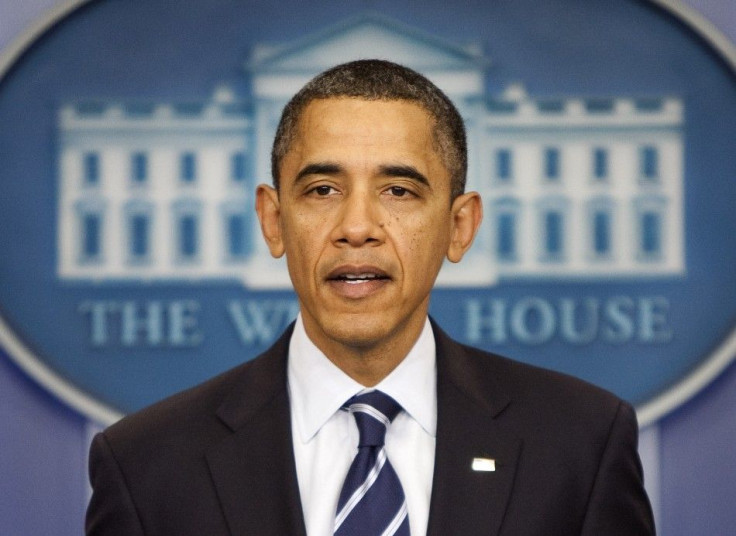At Oklahoma Oil Hub, Obama Pledges To Speed Part Of Pipeline

(REUTERS) - Standing in front of a row of pipes, President Barack Obama pledged on Thursday to accelerate approval for part of the Keystone XL pipeline, seeking to deflect criticism that his rejection of the full project helped create a climate for high gasoline prices.
Rising fuel costs are threatening to derail Obama's hopes of winning re-election in November, and Republicans have honed in on his decision to block TransCanada Corp's Canada-to-Texas pipeline as a sign that his energy priorities were hurting America.
U.S. gasoline prices have jumped nearly 30 cents in the past month, pushing the national average to $3.87 a gallon, according to the Energy Information Administration.
Obama's trip to Cushing, Oklahoma, the starting site of the southern leg of the controversial project, was designed to show his all of the above energy strategy included room for oil and gas development in addition to support for renewable fuels.
Today I'm directing my administration to cut through the red tape, break through the bureaucratic hurdles, and make this project a priority, Obama said, standing without a tie at a podium that was surrounded by rows of green- and copper-colored piping segments.
The White House relished the setting and clearly wanted the photo-op. Bad weather nearly forced Obama to deliver his remarks in an Oklahoma City hotel instead.
It is unclear whether Obama's call would actually speed up the approval process. The Army Corps of Engineers, one of the agencies that is likely to be involved, said on Wednesday it could not estimate how long approval would take since it had not yet seen an application from the company.
Republicans dismissed Obama's move as a publicity stunt that made little difference to the timeline of the southern project or the problem of U.S. energy security. He's taking credit for going forward on the only portion of the pipeline that he doesn't need to approve, said Senator John Hoeven of North Dakota at a press conference. This is literally straddling both sides of the issue. Hoeven has led the charge in the Senate to pass legislation that would bypass the administration and approve the full pipeline.
Draining Glut
Despite numerous attempts by Republicans to compel the president to approve the Keystone permit, Americans are still left with a 1,179-mile (1,897-km) gap between the oil resources and this southern portion of the pipeline, said Brendan Buck, a spokesman for Republican Speaker of the House of Representatives John Boehner, referring to the full Keystone XL project.
The southern portion of the pipeline would drain a glut of crude in Cushing, the storage hub for U.S. crude oil traded on the futures market, easing deliveries to refineries along the Gulf Coast.
Obama rejected the full Keystone XL pipeline earlier this year, blaming Republicans in Congress for forcing his hand with a mandatory deadline that did not give the State Department enough time to study its environmental and safety implications.
Republican presidential candidates Mitt Romney, Rick Santorum, and Newt Gingrich have made criticism of the decision a key part of their respective platforms to win their party's nomination and the right to take on Obama in the November 6 election.
Though Obama's original decision to block the pipeline cheered environmentalists, who make up an important part of his political base, those same supporters expressed dismay at his statement on Thursday.
President Obama has taken a dangerous wrong turn on energy, said Larry Schweiger, president of the National Wildlife Federation.
Rushing pipelines and drill rigs for rich oil executives will only delay the investments we need in renewable energy and create long-lasting damage to our waters and lands.
(Additional reporting by Timothy Gardner and Ayesha Rascoe in Washington; Editing by Russell Blinch and Xavier Briand)
© Copyright Thomson Reuters {{Year}}. All rights reserved.






















